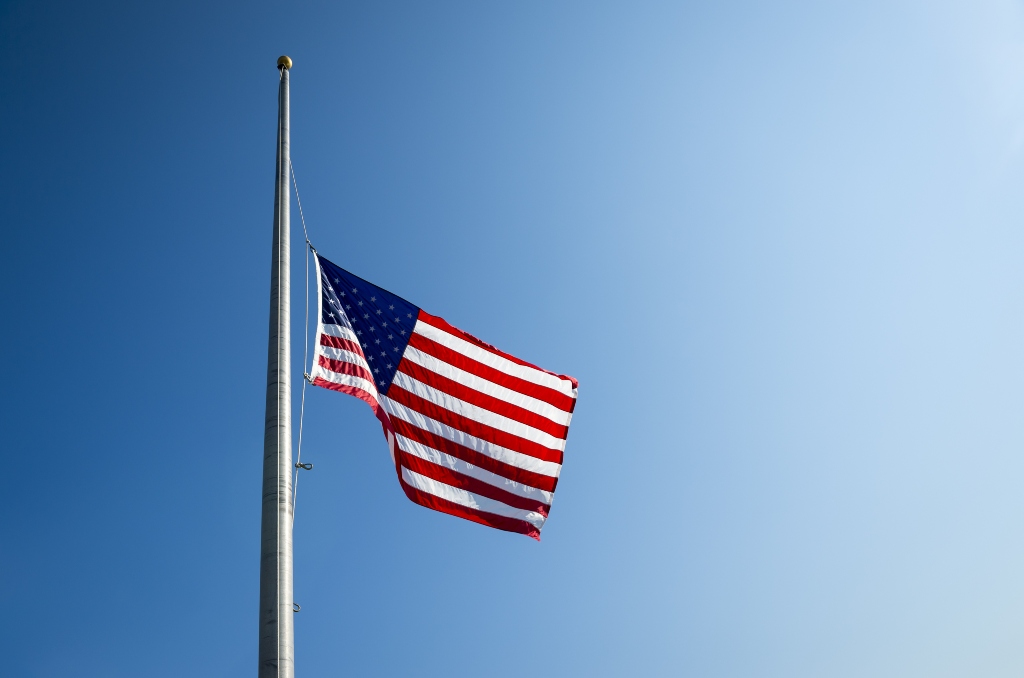Bullies are making a comeback. By wrapping up in the star-spangled cloak of the MAGA + America First movements, we are already seeing the thrust of what this next Trump administration has in store for American citizens and the rest of the world. 1) Trump's administration does not tolerate differences. We've had enough diversity, inclusion, and equity, thank you very much. We certainly don't want it in our military, schools, or workplaces. 2) We are interested in land grabs both internal and foreign. Parks and natural resources are now back up for sale and we'd be interested in acquiring other territories and countries (you know, like Russia, Israel, and presumably, China). James K. Polk has nothing on this president's "manifest destiny 2.0" ambitions. 3) We are all in on thugs running things (as long as they are our thugs). If the executive orders and choices for cabinet positions have taught us anything, Trump demands fealty and has ramped up his war on civil servants and liberals who would want, dare I say, independent inspector generals with oversight of executive branch departments. 5) Marking our territory matters. If there is anything that a man who made a living by brand development and management knows, we have to have our name and claim credit for America. What's in a name? Remember Freedom fries?
All of this is to say that Trump 2.0 is about weaponizing the bending of plowshares back into swords. We have the military and economic might to tell Columbia that they must accept those we deem "not our jobs, man" back to their fold, or else their roses are going to be 25% more expensive to wannabe Romeos on Valentine's Day. It is very simple, Uncle Sam is not in the diplomacy business anymore. We are walking loudly and carrying a very large stick to get rid of the pariah that we mostly made up as having. It is no wonder that Marco Rubio's nomination flew through the Senate. He is irrelevant as the head of the State Department other than as a messenger to allies and foes alike that foreign aid comes with a very high cost of autonomy and free will. The fact that Pete Hegseth is now running the Defense Department is more because toxicity is back, baby! Hegseth is likely to run the DOD with the sensitivity of napalm. Also, you never know when you might need the threat of turning your military on your citizens, right? Then, of course, you put a person who would kill their own dog rather than learn how to train it in charge of the lives of immigrants who are essentially country-less and people who have experienced harsh trauma via natural disasters. You want the guy who wanted to make a social experiment out of measles-ridden Samoan children to prop up his ill-informed ideas about vaccinations. And that is just the frontline.
By going the way of tariffs, Trump directly contradicts his announcement that he is going to lower the prices of food and other goods. Most people understand that if the cost of something to manufacture goes up, so is what they pay for it. Many others have spelled out how tariffs do work and I will say it is a surefire way to collapse the economy if it is threatened for the myriad of reasons it has or could be. The economy doesn't have feelings, but the bankers do. They do not like instability in the financial markets, And we do not like nervous bankers.
Intimidation may be a worthwhile goal for NFL players in the heat of a playoff advancement, but not the people elected to lead the country. To treat this country as if it were frozen in time and must be protected by any means necessary is to misunderstand what makes it an admirable place to live. It is because we have learned how to accept differences that we have a place to aspire. Sadly, it is as if we are rewarding those jerks in the stands who go after the umpire because they didn't like the call on their kid. Where is the humility, where is the "ask not what your country can do for you, but what you can do for your country?" We are descending into one nation guided by intimidation. Before the election, it was me declaring that Donald Trump was America's Chicken Little because he tended to awfulize so much. It turns out he was determined to be the American cock of the walk.




